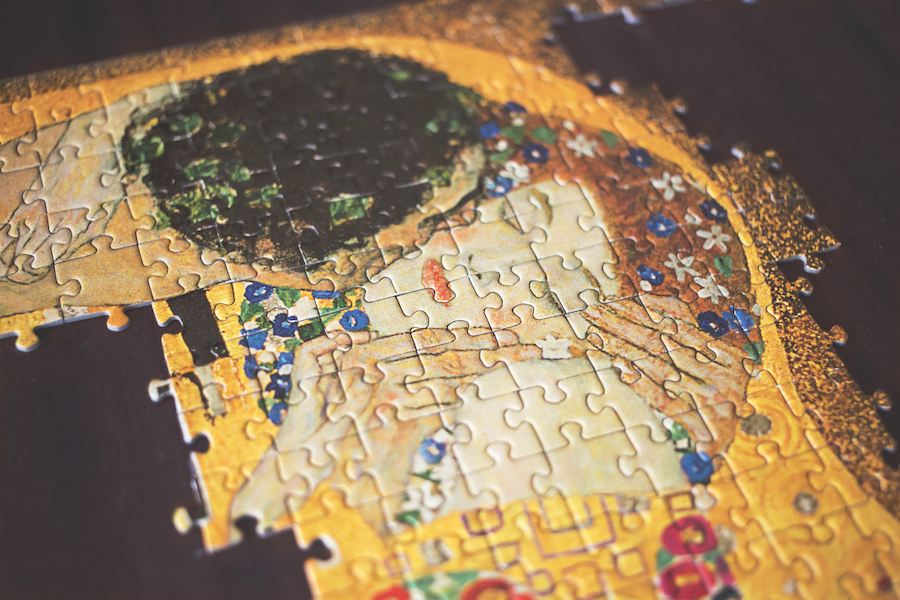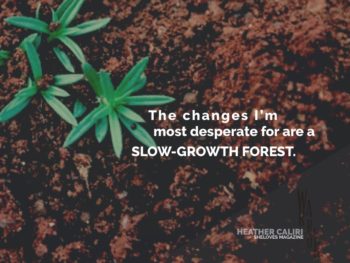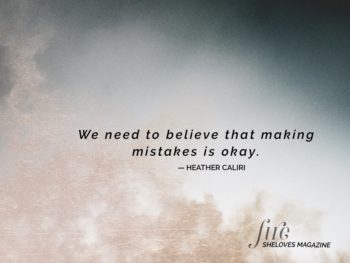
“I am not the Christian I want to be.”
I typed the words on my computer, then I stared at them for a minute. For my hammering heart and the cold sweat I felt slinking down my arms, one would think I were confessing to some kind of felony.
No: thought crimes were all I was writing about.
Crimes like sitting in church and wishing I could put in earplugs during the sermon. I was so tired of sermons. I longed for a church service without someone nattering on about the Bible, about what we were supposed to do to grow in our faith. I doodled around the fill-in-the-blank questions instead of listening, a sort of gleeful resentment in my heart.
Or spiritual disciplines. When I tried to add some to my life: a Sabbath rest, fasting, they inevitably turned into bean-counting, an exercise in legalism that seemed to push me farther from God’s grace.
Or the stuttering failure of my recent attempt to read through the Bible. I’d done it successfully a handful of times, but this go-around the experience unnerved me. Reading the Old Testament had been bad enough, but at least I knew that smiting and genocide bothered a lot of people. Things would get better with the Gospels, surely.
But in the New Testament, I felt like Jesus was standing with his hands on his hips, shaking his head in disgust at me.
“You unbelieving and perverse generation,” he said. “How long must I put up with you?”
I flinched. I finished the rest of the chapter, trying hard to not think or feel as I read. I tried to gloss over the words like they weren’t burning hot to my soul. But days later, I gave up the project. If I kept reading the Bible, I’d lose my faith altogether.
It seemed like any kind of exercise meant to draw me to God turned to ash in my hands.
As I typed, I considered this possibility: was I a Christian at all? If doing Christian things turned me anxious, fretful and legalistic, maybe this whole faith journey was a sham. Maybe I was pretending or compensating or carrying on with something deeply unhealthy.
Whatever was happening, I couldn’t continue doing it anymore.
And I needed to be honest with someone about what was happening.
Except: what would be the consequence?
I imagined telling my husband—whose faith had always been smoother than mine—about the idea that maybe I wasn’t a Christian.
Our shared faith had been so important when we said our vows. Prayer was a foundational part of how we resolved arguments. Church activities accounted for a big chunk of our family’s schedule. And we were raising our kids to be Christians.
He’s always been someone I could share hard things with. But this? Could I really share this?
I came downstairs and found him watching TV.
I still remember a sick feeling in my stomach in the moment before I told him, told him I didn’t know where my theology was headed, didn’t know how to hold the pieces of my faith together anymore. Didn’t know how to be a Christian.
I watched his face anxiously, and saw that he heard me.
And loved me anyway.
Then we had a hard talk about faith, and church, and our shared cynicism and bewilderment. I still remember the glorious lightness of my shoulders.
Instead of being ashamed, hiding my confusion, and pretending, I could be authentic with God and with the people closest to me. I finally knew that I wasn’t alone.
It turned out that the shame in my head was far worse than speaking my questions aloud.
When I finally admitted that I wasn’t the Christian I wanted to be, I realized that God wasn’t asking me to be that kind of a Christian. He wanted me to be who He created me to be: A spiritual misfit, a questioner, a struggler, and a dear daughter in need of God’s abundant grace.
And I’m learning each day how to become that kind of Christian, a more authentic, joyful, grace-filled incarnation of me.
Originally posted on Michelle DeRusha’s site.















Your break seems to have been short lived. This post had me smiling through out. I often want the earplugs and my husband is the preacher. It’s not him. That man knows the word with a capital W. It’s just some days, I want to sit there with music and listening to others share bits of their lives. My spirit gets restless but good sense takes over and I remember it’s not all about me. Always a hard realization 😉
Ha! I found it hard to actually -COMMIT- to a break, but I managed in the end 🙂
It’s been so healing that my way of expressing and living out my faith is just so very particular to me. My husband and I are still navigating how to walk together in faith when our rhythms and needs are different. But I think it helped to be really honest with each other about where we were, instead of pretending.